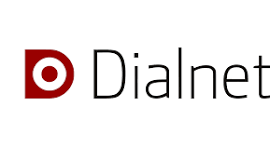Sociocultural Dimension Cooperative Associations Trujillo state: An economy more human
Keywords:
Cooperative Associations, Social Dimension, Dimension Cultural, cooperative members, human economyAbstract
Cooperative organizations as social production units by the growing need for a more human economy, are born with the aim of integrating homogeneously a set of values, ethical principles and shared visions that would not only satisfy specific needs of their members but also a group that hopes to draw organizations socio economically sustainable scenarios for a more just and equitable society. Therefore, the present paper aims to analyze the sociocultural dimension of Trujillo State Cooperative Associations, revealing a more human these social economy organizations. To this end, was part of a descriptive field, taking as sample population to 46 cooperatives Valera Township, Township 13 Boconó and 8 of the San Rafael de Carvajal Trujillo state, using information units to one (1 ) of the Board members of the cooperatives. Using a 46-item questionnaire with Likert type scale with alternative selection, which was submitted to the judgment of three experts to validate the content and reliability was established through Cronbach alpha coefficient, resulting in 0.908. Technique using descriptive statistics for data processing. Concluding that in the social, labor practices had a high frequency rate, which shows a high presence in the vital dynamics of cooperative unfolding the three municipalities studied cooperative organizations that promotes decent, healthy labor relations, promoting training and education of its members on a scale of equal opportunities. However, it was known that they do not feel connected to their communities and promote social responsibility practices. As for the cultural dimension is concluded that in 84.35% Boconó a behavioral elements are the most important (help, self-responsibility, democracy, solidarity), whereas for the structural Valera Municipality have greater enhancement (organizational mission, policy, communication, decision making) and finally to the municipality Carvajal, the symbolic elements are heavier (logo, colors).
References
Archel D., Pablo (2002). Las memorias de sostenibilidad de la Global reporting initiative. Trabajo presentado en el quinto congreso de economía de navarra, España
Bastidas Delgado, Orcar (2010). Economía social y cooperativismo: una visión organizacional. Editorial: Fundación Universitaria San Gil, UNISANGIL, primera edición, Santander, Colombia.
Constitución De La República Bolivariana De Venezuela (19991). Asamblea Nacional. Caracas, Venezuela.
Defourny J. (1992). Artículo: orígenes, contextos y funciones de un Tercer gran sector- Publicado en Monzón, J. L. y Defourny J. (dir.), Economía Social. Entre economía capitalista y economía pública, Valencia, Ciriec- España ed., 1992. Documento en línea disponible en: http://es.scribd.com/doc/57917080/Defourny-Economia-Social
French, W. L. Y bell, c.h. (1996). Desarrollo organizacional. Aportaciones de las ciencias del comportamiento de la Organización. México. Prentice-hall
Gray, R. H.; Owen, D. L. Yadams, C. A. (1996.): Contabilidad y rendición de cuentas. Cambios y desafíos en la información social y Ambiental. Editorial prentice hall
Global Reporting Initiative (2006): informe final del grupo de Trabajo de medición. Disponible en, http://www.globalreporting.org
Ley especial de asociaciones cooperativas (2001), publicada en Gaceta oficial Nº 37285 de fecha 18 de septiembre de 2001, Decreto Nº 1440 de 30 de Agosto del 2001.
Rubio Ardanaz, Eduardo (2006). “Reflexiones sobre el concepto de desarrollo sostenible, sus antecedentes y algunos apuntes para el momento presente y futuro. Disponible en:
Vargas Hernández, J.G. (2007) La culturocracia organizacional en México, Edición electrónica gratuita. Enciclopedia y Biblioteca Virtual de las Ciencias Sociales, Económicas y Jurídicas, Texto completo disponible en: www.eumed.net/libros/2007b/
Downloads
Published
How to Cite
Issue
Section
License
Copyright (c) 2013 Yaritza Medina , Rina Tigrera

This work is licensed under a Creative Commons Attribution 4.0 International License.








